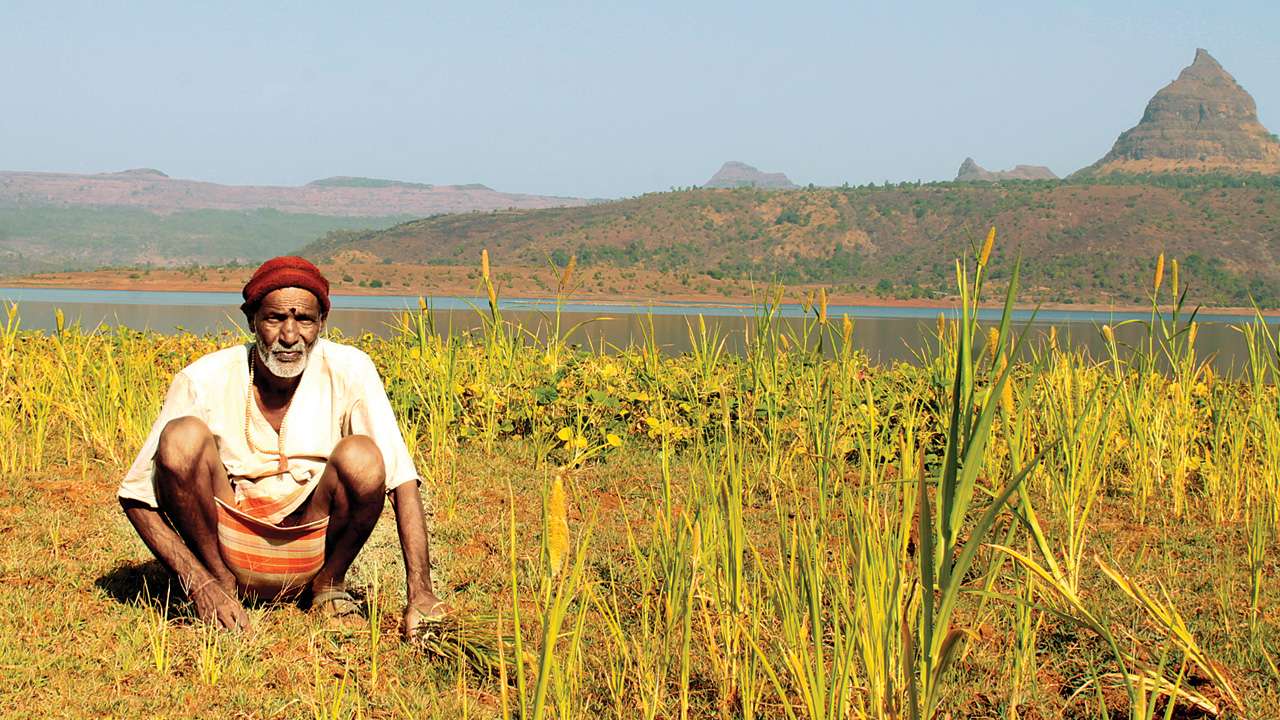
We call ourselves an agrarian society and have over 130 crore mouths to feed, but the next generation of farmers is not interested in farming since it is a losing proposition. The farmers have taken loans to educate their children. The absence of jobs has pushed their children to depression, drugs and crime.
Under these circumstances, what is the duty of the civil society towards the farmer, who in spite of adverse circumstances, feed us? I have met political leaders and have proposed steps to help the farm sector, but they are only interested in consolidating their votes, rather than building the nation.
Urban voters feel that loan waiver is an abuse of tax payer’s money and the practice will make the farmer complacent, who will look for waivers by successive governments.
The reality is that farmers’ debts have accumulated. For decades they have been deprived of remunerative prices for their produce. The government keeps the guaranteed Minimum Support Price (MSP) low to enable the consumer to get food grain at lower rates, despite the fact that the input prices have increased considerably.
Government agencies hardly procure five to six per cent of the produce and farmers are compelled to sell at lower rates, this accumulation of debt finally leading to suicide. Loans must be waived, but we must also ensure that this does not become a regular practice.
Here is a scheme where the banker’s perspective is taken into account and simultaneously, farmers promptly pay their installments of future loans in time.
The recovery of crop loans in the country as on 2019 would be stayed, but will be waived over a period of five years. This can be done by the banks/financial institutions by opening new crop loan accounts, as per scale of finance for all the farmers while the old accounts will be suspended.
The old crop loan will be linked to the new loan. If the farmer makes timely payment of the new loan account taken during the year, the government would pay his installment of 20 per cent for the old loan.
Accordingly in five years time, on one hand 100 per cent loans standing in the name of the farmers in 2019 would be cleared and on the other, farmers will get into the habit of making payments on time.
Simultaneously, farmers who have paid their loans in time before 2019 cannot be deprived of the benefit to the defaulters. Their loan amount would be refunded over the next five years. No fresh account is required to be opened up for this category.
Crop loans are taken to raise crops. These loans are mandatorily insured. Since loans are taken by individual farmers, the assessment of losses for insurance claims would be of the individual farmer’s land and not the entire village, as is the case today.
If the crop is lost due to any natural calamity, including destruction by animals, the crop loan will be automatically struck off in proportion to the crop loss.
The country has heard the slogan “Jai Jawan – Jai Kisan” for over 50 years. The jawans get pension after 20 years of service to the country. Likewise once the farmer feeds/serves the nation for 20 years, he will also get pension.
Sugarcane dues of three crore farming families has been a major concern for decades. Though the statute provides for payment within 14 days, farmers have been agitating for years to get their cane dues. No rocket science is required to resolve this issue. The government only has to impose payment of statutory interest of 15 per cent on delay in payment without any waiver.
The mills get loans at the rate 10-12 per cent per annum from the banks and if they have to pay 15 per cent interest, they will not hold the payment even for day.
Members of the All India Kisan Sangharsh Coordination Committee (AIKSCC), an umbrella of 210 farming organisations across the country, has tabled two private member bills in the Parliament in August, 2018.
These bills pertain to complete debt relief and MSP to be fixed at the rate of one-and-a-half times the production cost, along with the guarantee of procurement. This is exactly what Prime Minister Narendra Modi promised the nation in his earlier election speeches.
While 21 opposition parties signed a resolution supporting the bills and came to the Kisan Sansad at Parliament Street on November 20, 2018, no one thought it fit to raise the issue in the House during question hour.
As the farmers took center stage, the Prime Minister tried to woo them by direct transfer of Rs 2,000 to every marginal agricultural family. But the moment the government found an opportunity after the Pulwama attack and the subsequent airstrike by IAF, the narrative of the 2019 elections changed to nationalism.
The shift in the narrative makes me wonder whether the hardships of the farmers can be thrown out of the window in the name of nationalism. What is Nationalism? Is the farmer who feeds the nation not a nationalist?
One can suggest a silent demonetisation strike, which has the potential to change the narrative once again. Nearly five to 10 per cent of the population are still in possession of Rs 500 and Rs 1,000 currency notes, despite demonetisation. They should be given to the farmers, who need it the most. It could also change the fortunes of any political party.
Author is a farmer and politician